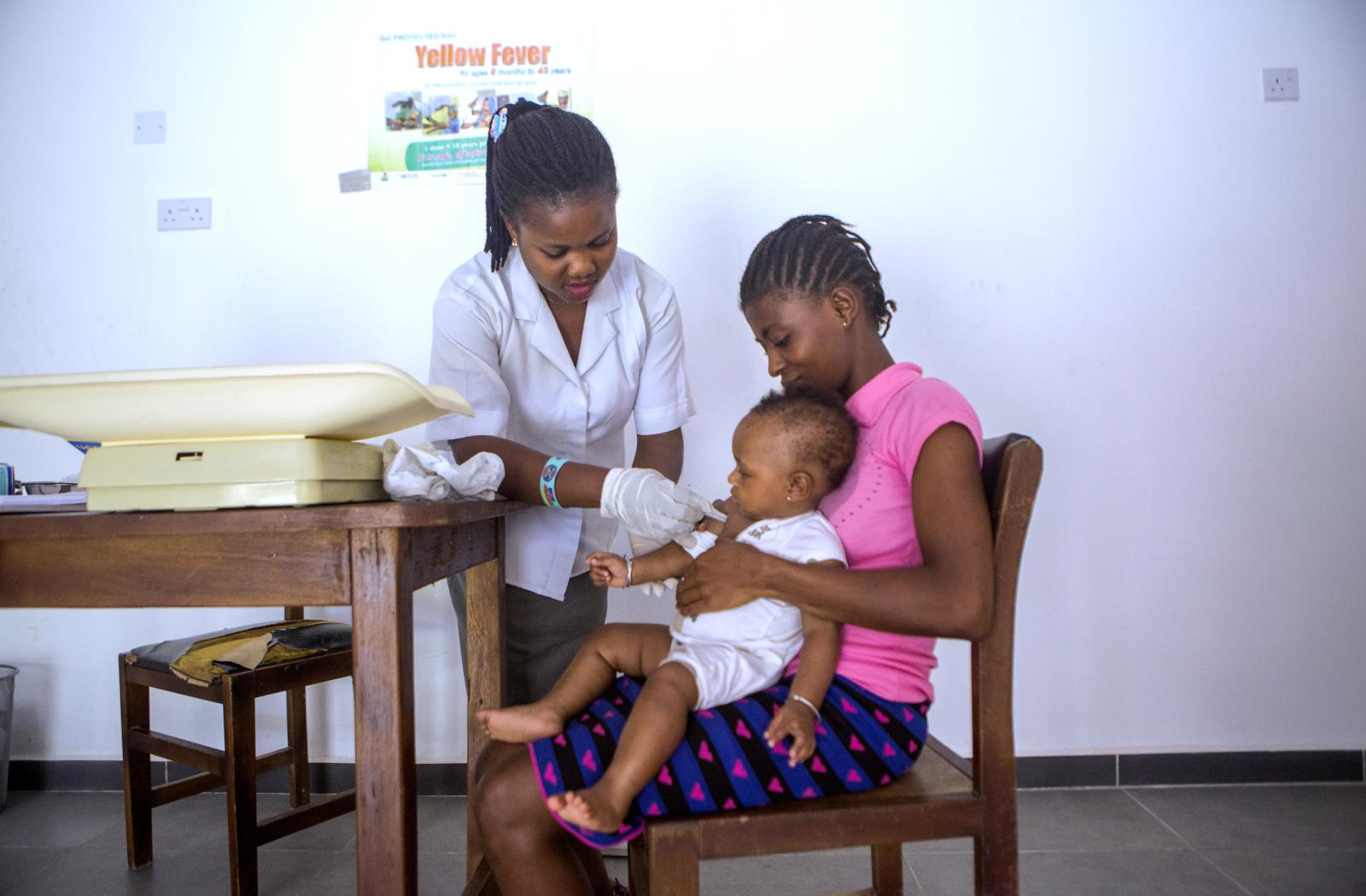Commonwealth health ministers, senior government officials, global health leaders and civil society groups will meet in Geneva from 24 to 25 May 2024 to examine practical interventions that will enable countries, particularly small and vulnerable states, to strengthen their health systems and recover effectively from exogenous shocks.

The timing of the ministerial meeting is crucial, particularly as countries are in the final stages of negotiating the Pandemic Accord. Hosted by the Government of Kiribati, the Commonwealth Health Ministers Meeting (CHMM) will focus on the theme:
‘Actionable Solutions to Building Resilience in Health Systems within the Commonwealth, with an Emphasis on Small and Vulnerable States’.
Establishing robust and resilient health systems
There are ongoing efforts from many Commonwealth countries to strengthen their health systems. While there has been progress, there is a need for further advancements to establish robust and resilient health systems. One of the Commonwealth’s flagship reports, the Global Youth Development Index, noted that the health and wellbeing domain recorded a 1.8 per cent improvement from 2010 to 2022, driven by improvements on five out of seven indicators. However, the report also acknowledged the continued need for significant improvement to ensure accelerated and equitable healthcare aligns with the demographic transition towards an ageing population.
The Commonwealth Secretary-General, the Rt Hon Patricia Scotland KC, will lead the team from the Secretariat attending the meetings in Geneva. In contextualising the discussions that will take place, she said that countries need to address new and growing threats:
“Events over the last few years have shown that health is not only a matter for countries to grapple with, but the impact can become globally significant if not managed carefully and adequately resourced. We now face the critical intersection of human and planetary health in the face of escalating climate change.”
“These crises not only intersect but they exacerbate the impact and cost – both on the burden of the health care systems and on families and communities. We cannot combat them separately”.
She continued:
“Among those most at risk are small and vulnerable states. Characterised by structural and geographic vulnerabilities, limited resources, and a higher risk of exogenous shocks and stressors, these states face a myriad of challenges that underscore the importance of strengthening health systems to withstand and respond to emergencies”.
Our discussions in Geneva will facilitate a collaborative and holistic approach.”
The Secretary-General averred that a paradigm shift was necessary. She advocated an integrated approach that would bring together evidence based and sustainable solutions with expertise from the health, climate, economics and social welfare sectors. She pointed out the need to move away from traditional silos and prioritise the One Health approach, that places the wellbeing of all life and ecosystems at the forefront of collective efforts.
The meeting will be held just ahead of the 77th World Health Assembly, hosted by the World Health Organization (WHO). The Commonwealth Secretariat will also partner with the WHO for a side event on 26 May to explore how countries can leverage digital technologies to deliver health services more effectively.
Digital health provisions
At the side event, participants will also share global perspectives to chart a way forward for many low and middle-income countries facing challenges in implementing digital health provisions. It will also feature the presentation of country case studies and a discussion on critical steps to strengthen the Commonwealth’s Coalition on Digital Health.
Non-communicable diseases
Among the other discussion items for 36CHMM, will be the rising threat of non-communicable diseases (NCDs). A recent Commonwealth report stated:
“This impact of NCDs is felt most acutely in the world’s small island developing states (SIDS), of which 33 out of 42 are Commonwealth member countries. The Commonwealth’s SIDS have some of the world’s highest rates of diabetes and obesity, which are key risk factors for cardiovascular diseases.”
“The Commonwealth is, therefore, disproportionately affected by premature, preventable deaths due to NCDs, which in turn have a profound impact on the prevalence of mental health issues and on economic prosperity and are a major threat to sustainable development. If these diseases are not prevented or effectively controlled, there will be dire repercussions on healthcare costs and labour productivity.”
Collective action
The focus on small and vulnerable states at the Commonwealth Health Ministers Meeting is especially significant as the Commonwealth Secretariat is fielding a delegation to Antigua and Barbuda for the Global Conference on the Sustainable Development of Small Island Developing States, known as SIDS4.
It also resonates with the focus of CHOGM 2024 in Samoa, underscoring the Commonwealth's commitment to collective action towards resilience, sustainability, and a shared future.
While in Geneva, the Commonwealth Secretary-General will also meet with global health leaders, government ministers, senior officials and other public figures to discuss ways to deepen ongoing partnerships and cooperation.



